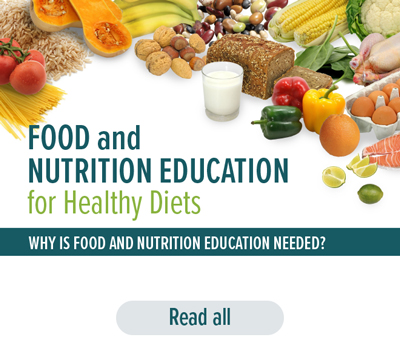
There are three main types to prevent cardiovascular disease: primary, second, and primordial. Although each of these elements has the same components, the starting point and effects are different. For prevention to be most effective, patients need to be aware of their risk factors, and develop a personalized plan. The goal is to reduce your risk for cardiovascular problems and live a long and healthy life. Read on for tips on how to prevent heart disease. This article discusses the treatment options and different types of heart disease.
First, focus on a heart-friendly lifestyle. A heart-friendly lifestyle is one that is rich in fiber, low levels of salt, and high in vitamins, minerals. The next step is to eliminate processed food, including white bread and processed snacks. These foods are not good for your heart, unless they have high fiber content. You can also avoid processed snacks and fast food. Lastly, don't reach for the salt shaker. Too much sodium in the body is a risk factor for cardiovascular diseases.

It's important to eat a healthy diet and exercise regularly. Experts recommend that you exercise 150 minutes per week. This is approximately 20 minutes per day. You should also eat a variety low-calorie meals. Regular exercise can also reduce blood pressure and prevent heart diseases. Heart disease prevention can be achieved by practicing mindfulness and managing stress. It's easy to make lifestyle changes and it's not hard!
Healthy diets can help reduce your risk of heart disease. A diet high on fruits and vegetables will reduce your chances of getting this disease. Low-fat protein and beans are also excellent sources of protein and may reduce your risk. Certain fish are also high in omega-3 fatty acids, which may help you reduce your risks of cardiovascular disease. Start incorporating these techniques into your daily routine if you have the opportunity.
Smoking is a significant risk factor for developing heart disease. To reduce your risk of developing coronary heart disease, quit smoking. If you smoke, you should quit. The better for your health, the fewer cigarettes you smoke. Additionally, secondhand smoking will reduce your risk for coronary artery diseases. If you're a smoker, it's important to quit smoking. This will reduce your risk of heart disease.

It is important to take steps to prevent heart disease. While it is difficult to detect, the disease can lead to an increased risk of heart failure and other serious symptoms. It is important that you take steps to decrease your risk of developing heart disease. If you have healthy habits, your chances of developing this disease will be reduced. This will help you live a long healthy life. The healthier you are, the more you do.
FAQ
Eggs good for men
The egg is rich in all nutrients needed by the human body. It also helps maintain strong bones, a healthy heart and lungs, and stable blood pressure.
Eggs are a great source of protein, vitamins A and B12, D. E. K, calcium, magnesium, selenium and riboflavin.
The egg yolk contains high levels of cholesterol. However, the egg yolk is low in cholesterol. Eggs are low in saturated fat compared to other foods.
In addition, they are low in sodium and calories. Because they can be cooked in almost any way that you wish, they are versatile. You can cook them in many ways, including poaching, boiling, hard-boiling, baking, and scramble.
They are incredibly nutritious and easy to prepare.
Aim to eat two whole eggs per week. You don't have to eat eggs.
Essential nutrients are found in eggs. Consider adding eggs to your daily meal plan today.
What kind of food should I avoid when trying to lose weight?
Avoid trans fats. Trans fats increase LDL (the harmful) cholesterol and lower HDL (the good).
Trans fats can be found in fast food, deep-fried foods, packaged baked goods, snack cake, and other processed foods.
These unhealthy fats also cause inflammation, leading to heart disease and diabetes.
Artificial sweeteners are also to be avoided. Artificial sweeteners have been linked to an increase in cancer risk.
These chemicals are found in many products, including soft drinks, candy bars, chewing gum, as well as candy bars. They also appear in meat, poultry and eggs.
Artificial sweeteners include saccharin, cyclamate, sorbitol, aspartame, acesulfame-K, and sucralose.
The American Heart Association recommends avoiding these chemicals because they may damage DNA in cells.
What is the best workout routine to build muscle?
Two main types of exercises are required for building muscle mass. These are called compound movements and isolation. While compound movements focus on a single muscle, isolation exercises are focused on specific muscles.
Choose exercises that test all your major muscle groups to improve your workouts. This ensures that your sessions are challenging and you are always working hard.
To keep track of what you have done, use an app called MyFitnessPal. You can log everything, from calories burned to weight lifting. You can also create custom meal plans based on your goals.
What is the best workout order?
It all depends on what you're looking for. To build muscle mass, you should first lift heavy weights. Then, move on to cardio. For those who want to lose weight or exercise, you can switch from cardio to strength-training.
Cardio can be done if you want to just lose fat. Add strength training to your workouts.
Do cardio first if you are looking to increase muscle mass. It stimulates growth hormones that help build muscle mass.
Eat before you go to the gym. This will fuel your muscles, making them work harder. You will feel happier during your workout.
How Metabolic health is key to aging well
People are living longer today than ever. However, as they age, so do their chances of getting sicker. Even though we have made significant advances in medical science it is becoming clearer that our current approach doesn't work.
We have to change how we see health and aging. We have to start looking at metabolic health - not just weight loss but overall wellness - as the key to healthy aging.
You must ensure your metabolism is strong and healthy throughout your life if you want to lead a long, active life.
The good news? There are many things you can do to improve your metabolism. One of those ways is to incorporate these 7 foods into your diet:
-
Resveratrol has been proven to increase cellular longevity. They also contain antioxidants and vitamins C & E.
-
Beans like lentils and pinto beans are excellent fiber and plant-based protein sources. These nutrients keep blood sugar levels stable so that they don't spike or crash.
-
Broccoli has sulforaphane. It has been proven to protect cells from DNA damage. It may even slow down the progress of cancer.
-
Chia seeds are rich in fiber and omega-3 fatty acid. They are high in protein and antioxidants. All of these nutrients help promote heart health, brain function, and gut health.
-
Green Tea contains polyphenols called caechins. Studies have shown that green tea contains catechins which are linked to lower bone fractures and cardiovascular disease. They also reduce cognitive decline and diabetes risk.
-
Salmonis a great source of lean protein. It is low in saturated fat and high in vitamin D.
-
Walnuts are rich sources of omega-3s and antioxidants, such as alpha lipoic (ALA). ALA protects against inflammation and boosts energy production.
Does Weightlifting Burn Fat Faster?
You can lose more fat by weight lifting, but only when you do it in conjunction with cardio.
Cardio workouts are a great way to increase the weightlifting benefits.
If done correctly, weightlifting can increase your heart rate and oxygen intake which in turn helps you lose weight.
You will not notice any changes in your body composition if you don’t combine it and cardio.
What's a good workout plan for 7 days?
Three days per week should be spent on cardiovascular training, including running, biking, swimming, and two strength exercises using free weights, weight machine, as well as one flexibility/core exercise such as yoga, Pilates. It's essential to do each activity at least once a week. Each session should not last more than 45 minutes.
Cardiovascular Exercises: Swimming, Cycling, Running
Aim to do at least 60 minutes per week of cardio. You can aim for 75 minutes a week for best results. Cardio exercises can help improve blood flow and stimulate muscle growth.
Strength Training
While cardio exercises target the heart and lungs, strength training targets the muscles and bones. Strength training increases lean muscle mass and helps to burn calories even at rest.
Flexibility & Core Workouts
Core and flexibility exercises are great ways of strengthening your whole body. Both yoga and Pilates are excellent options.
Statistics
- By John Thompson Take a whopping 38% off a set of PowerBlock Pros. (menshealth.com)
- The PRS enabled risk stratification for overall prostate cancer and lethal disease with a four-fold difference between men in the highest and lowest quartiles (HR, 4.32; 95% confidence interval [CI], 3.16-5.89). (pubmed.ncbi.nlm.nih.gov)
- Candidates and applicants must pass all four tests at 70% (minimum level) to graduate from Basic Deputy U.S. Marshal (BDUSM) Training. (usmarshals.gov)
- Get free shipping and 25% off today. (healthline.com)
- An estimated calorie range for moderately active adult males falls between 2,200 to 2,800 calories per day, depending on age. (eatright.org)
External Links
How To
How to Eat Well for Men
Eat small meals throughout the day instead of three big ones. Smaller meals mean less time sitting on your stomach digesting food. Later you will be less likely to overeat.
Before bed, avoid snacking. You will be hungry the next day if you eat late at night.
Consider having a light snack one hour before bed.
Avoid snack attacks, where you grab something to eat when you feel hungry. This is particularly dangerous if your weight is already high.
All meals should be balanced. Avoid skipping breakfast and make sure that you don't eat too much at lunch and dinner.
You can cut down on calories if you have trouble losing weight.
You can cut out caffeine, alcohol, and nicotine. Both can impact the way your body processes nutrients.
Get enough sleep. Sleep deprivation makes people crave junk food.
Exercise regularly. Exercise can boost your mood, improve energy levels, and reduce calories.
Take care to your mental health. Stress can cause weight gain and overeating.
Relax. Meditation and yoga are great ways to relieve stress and anxiety.
Keep track everything you eat. Notify your family about everything you eat.
Don't forget about supplements! For most men, they don't consume enough vitamins or minerals to be healthy.
Every day, take a multivitamin. A multivitamin daily can help prevent certain deficiencies in key vitamins and minerals.
Take a vitamin C supplement. It helps keep your immune system strong and prevents scurvy.
Add zinc to your diet. Zinc deficiency can cause impotence.
Get water. Limit your fluid intake to 1.5 liters daily (about 4 cups).
Limit salt. Sodium raises blood pressure and leads to heart disease.
Stay away from trans fat. Trans fat has been associated with increased obesity, diabetes, as well as heart disease rates.
The Best Male Enhancement Pills 2018 - Read the Best Male Enhancement Pills Reviews
There are many male enhancement options available. Some are effective, while others don't provide real results. This article will tell you about the best male enhancement products that actually work.